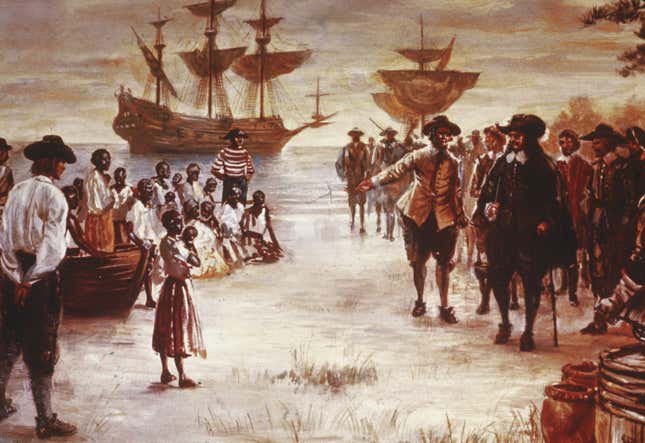
“Slavery was such a long, long time ago. Why can’t you people just forget about it?” —Wypipo proverb.
The legality of chattel slavery ended just over a century and a half ago in the U.S. Many white Americans want it to be regarded as distant history, not worth unearthing since “the past is the past” and it’s now time to move forward. But for black people, slavery isn’t a distant thing. Its shadow continues to loom over us 155 years after emancipation, in part because we’re still only a few generations removed from enslavement.
According to BBC News, the last survivor of slavery was recently discovered as Matilda McCrear, who died in 1940 at the age of 83.
Incidentally, McCrear is remembered by her grandson Johnny Crear who is presently 83-years old.
“I had a lot of mixed emotions,” Crear told BBC News after learning of the discovery. “I thought if she hadn’t undergone what had happened, I wouldn’t be here. But that was followed by anger.”
The discovery was made by Hannah Durkin, lecturer of Literature and Film at Newcastle University. Durkin had previously identified a woman named Redoshi Smith, who was captured from Africa and brought to the U.S. in the 19th century and died in 1937, as the last survivor. Now, with the discovery of McCrear comes a harrowing story. From the BBC:
Matilda had been captured by slave traders in West Africa at the age of two, arriving in Alabama in 1860 on board one of the last transatlantic slave ships.
With her mother Grace, and sister Sallie, Matilda had been bought by a wealthy plantation owner called Memorable Creagh.
Dr Durkin says there must have been a dreadful sense of separation, loss and disorientation for these families. Matilda’s mother had lost the father of her children and two other sons left behind in Africa.
And in the US she had been powerless to stop two daughters from being taken from her, sold to another owner and never seen again.
Matilda, Grace, and Sallie tried to escape the plantation soon after they arrived but they were recaptured.
The abolition of slavery, in 1865, brought emancipation but Matilda’s family still worked the land, trapped in poverty as share-croppers.
Crear says he never learned much about his grandmother’s history growing up. Imagine learning this was the life and history of a close relative. How difficult would it be for you to accept “the past is the past” as a narrative?
Durkin describes McCrear as quite the rebel, saying, “But Matilda’s story is particularly remarkable because she resisted what was expected of a black woman in the US South in the years after emancipation. She didn’t get married. Instead, she had a decades-long common-law marriage with a white German-born man, with whom she had 14 children.”
“Even though she left West Africa when she was a toddler, she appears throughout her life to have worn her hair in a traditional Yoruba style, a style presumably taught to her by her mother,” Durkin continued.
Durkin’s research is published in the journal, Slavery and Abolition.
This is our history and our legacy and we refuse to forget it lest we become complacent in fighting for our civil liberties today. Crear, still grappling with what he has learned of his grandmother said it best:
“From the day the first African was brought to this continent as a slave, we’ve had to fight for freedom.”



